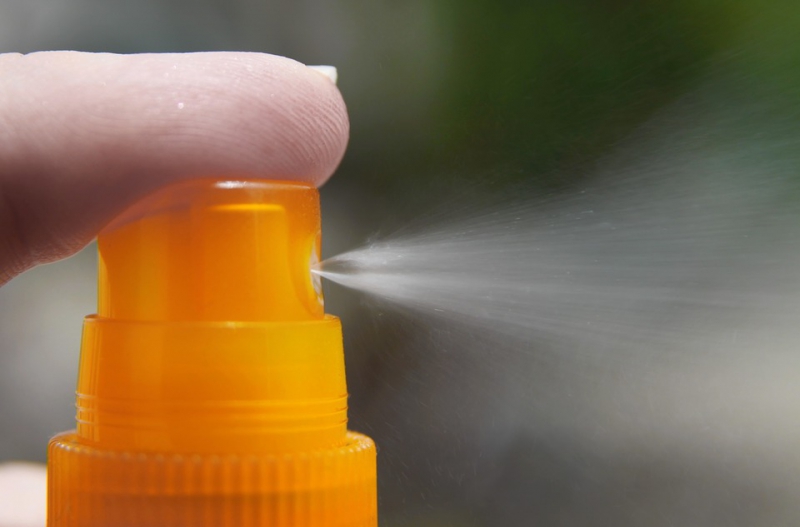 |
| ▲ Because children have a lot of outdoor activities, they should pay attention to UV rays (Source: Pixar Bay) |
Children should be exposed to sunlight to absorb vitamin D. Vitamin D increases calcium absorption in the body and strengthens the bones. However, exposure to ultraviolet light can cause burns or burns, and all children, regardless of race or ethnicity, should apply sunscreen.
According to the Skin Cancer Foundation, 80% of the lifetime exposure to ultraviolet light is in childhood. Excessive exposure to ultraviolet rays can cause burns and doubles the likelihood of developing melanoma, a type of skin cancer. How to protect your children from strong ultraviolet rays in summer is as follows.
1. Apply sunscreen
The American Academy of Dermatology (AAD) said that it is recommended that all children, regardless of skin color, apply SPF 30 or greater sunscreen. 30 minutes before going out, the sunscreen should be adequately cleaned. Using a fragrant sunscreen, children can not only love them, but they can also apply them more precisely without missing parts. Nose, ears, hands, feet, shoulders, neck, etc. It is good to apply lip balm with sunscreen because lips can also burn. Sunscreens should be applied every 2 to 3 hours and should be applied after sweating or swimming. It is advisable to apply a sunscreen that is waterproof when you go to the beach to make sure that the sunscreen is able to block UVA (long wavelength) and UVB (UVB). Many people apply too little sunscreen, but they should be applied as much as described in the instructions. Also, after applying ultraviolet rays, you must wash your hands in order not to rub your eyes accidentally. It is best not to use sunscreens containing insect repellent.
 |
| ▲ sunscreen spray (Source = Pixar Bay) |
2. Cover skin with clothes
One of the best ways to protect your skin from ultraviolet light is to cover your skin with your clothes. It is good to wear large cotton clothing or UV protection clothing for your child. Many children's clothing, including swimwear, contain UV protection. To protect against ultraviolet rays, it is better to cover your hands with clothes. It is also important to wear clothes, hats and sunglasses. Children's skin is thinner and melanin pigment is less developed, so it is easier to burn than adults. Especially for infants younger than 6 months, they should be in the shade and not exposed to the sun as much as possible. If your children are outdoors, it is a good idea to have a large umbrella or tent and wear long dark colored shirts and long trousers. It is most important to wear sunscreen clothing and hats.
3. Avoid outdoor activities during times of strong ultraviolet rays
Between 10:00 am and 4:00 pm, it is best to refrain from outdoor activities because ultraviolet rays are very strong. Even in cloudy or cool weather, UV rays are still very strong during this time, which can lead to unexpected burns or skin problems. If children are outdoors at this time, they should be given plenty of sunscreen, even if they play only in the yard.
 |
| ▲ Kids who play happily (Source: Pixar Bay) |
4. If you are taking medicines, check to see if it affects your skin.
Some antibiotics, acne medicines, and over-the-counter medicines may be more sensitive to ultraviolet light, which affects children's skin. If your child is taking these medicines, it is best to pay particular attention to exposure to ultraviolet light, cover your skin with clothes, and stay indoors. In this case, the sunscreen alone may not have enough effect, so it is good to talk with your doctor or pharmacist.
5. Wear sunglasses
Ultraviolet rays can damage corneal burns as well as skin. Excessive exposure to ultraviolet light can cause a reduction in vision. So it is best to protect your eyes with sunglasses that block ultraviolet rays 100%. There are many different types of children's sunglasses, including colorful frames and sunglasses with cartoon characters. It is also good for children to choose their own sunglasses. If the product is UVA and UVB interceptable, the effect is the same without buying expensive sunglasses.
It is important to protect children from excessive exposure to ultraviolet light. Parents can set an example and reduce the risk of burns or skin problems if children are always encouraged to wear sunscreen.
![[Parenting] How to protect children’s skin from strong ultraviolet rays parenting how to protect childrens skin from strong ultraviolet rays](https://moontore.com/wp-content/uploads/2019/02/parenting-how-to-protect-childrens-skin-from-strong-ultraviolet-rays-1200x700.jpg)


